Toronto Democracy Forum 2025, Research & Poilcy Papers
- World Anti Extremism Network
- Toronto Democracy Forum 2025, Research & Poilcy Papers
In an era marked by growing extremism and totalitarianism, the World Anti-Extremism Network (WAEN) remains committed to addressing these challenges through practical and diverse approaches. The Toronto Democracy Forum (TDF) is one such initiative that brings together scholars, thinkers, and freedom advocates from across the world to encourage open dialogue, understanding, shared learning, and collaboration. Each year, TDF convenes dedicated individuals to explore and understand the root causes of extremism, assess emerging trends in it, and share their research to develop effective strategies to counter them.
After each Forum, WAEN makes sure that the meaningful conversations held during the TDF don’t end there and continue to inspire action long after the event ends. Through the publication of these papers, WAEN works to reach a wider audience by sharing the research and insights of credible experts and advocates whose work contributes to shaping evidence-based policies and informed solutions, allowing many more people to benefit from the knowledge and perspectives shared during TDF.
Through this shared knowledge, these efforts aim to turn ideas into action and inspire collective efforts toward a freer, more peaceful, and inclusive world.
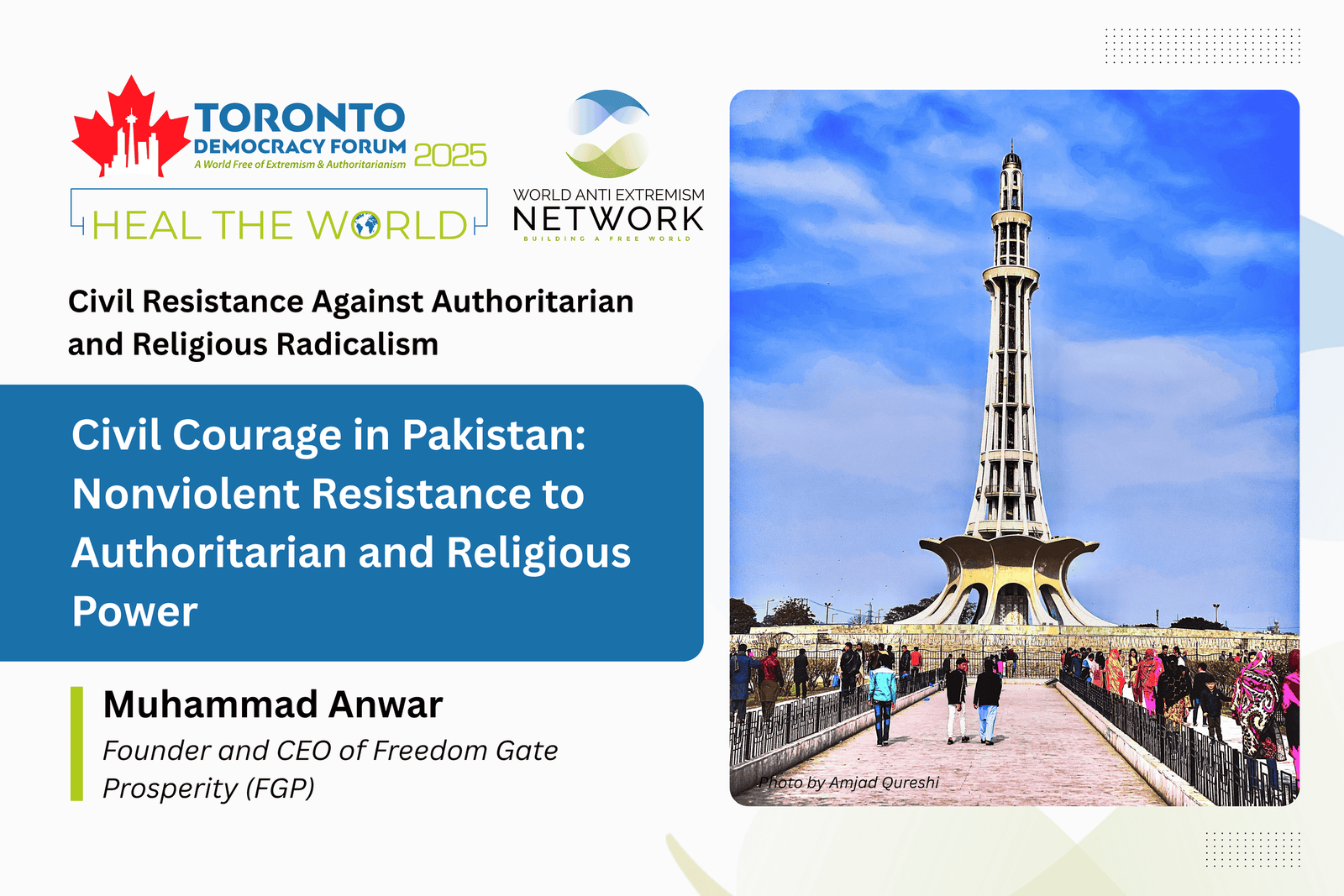
Civil Courage in Pakistan: Nonviolent Resistance to Authoritarian and Religious Power
Since its independence in 1947, Pakistan has cycled through multiple periods of military rule and waves of religious radicalism that have repeatedly constrained democratic development and civic freedoms. In this piece, the author Muhammad Anwar, Chief Executive Officer of Freedom Gate Prosperity, examined how ordinary citizens like lawyers, students, women, artists, and grassroots activists have deployed nonviolent strategies to reclaim …
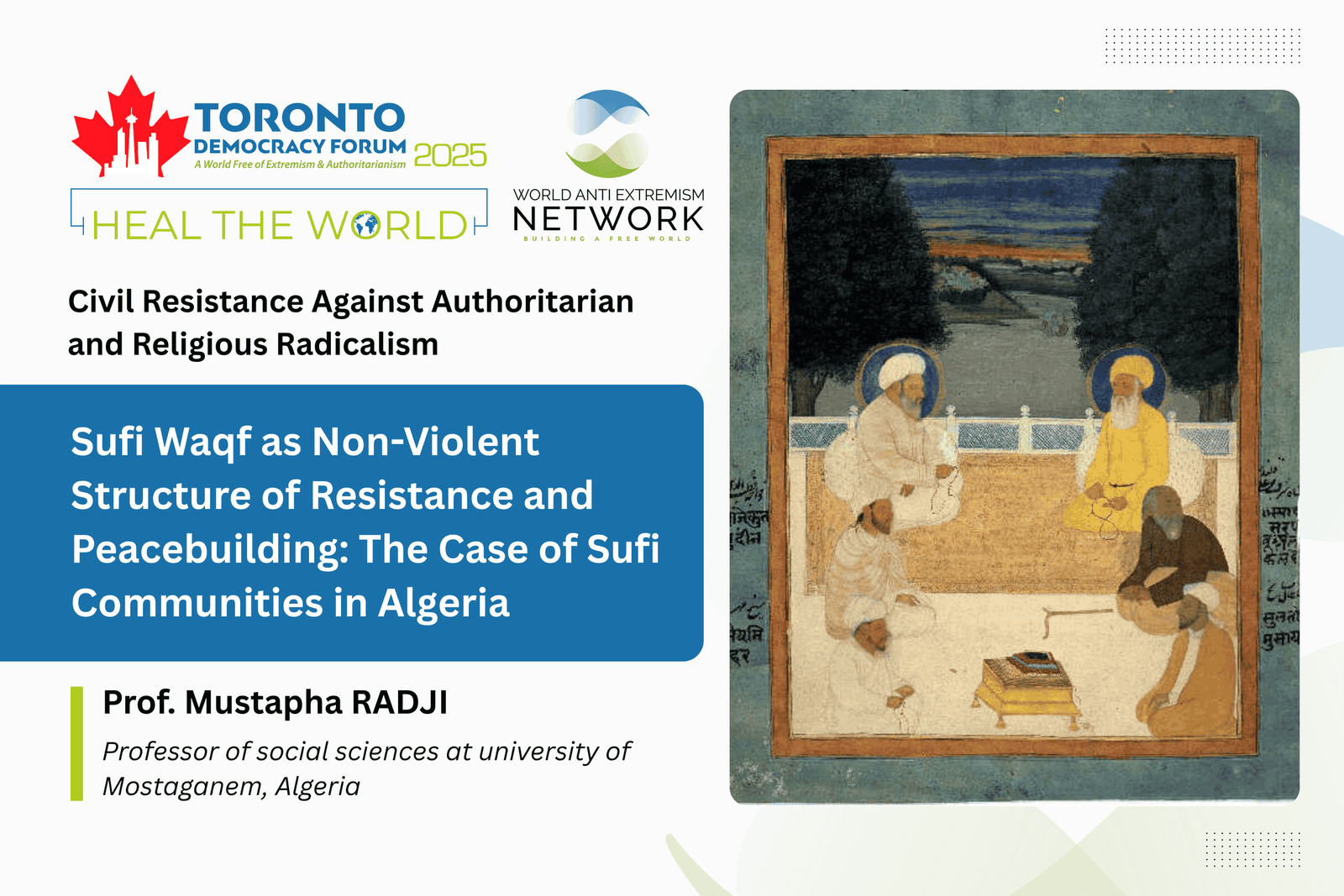
Sufi Waqf as Non-Violent Structure of Resistance and Peacebuilding: The Case of Sufi Communities in Algeria
When the discussion of civic resistance comes up, several civic institutions are mentioned. Sufi waqfs are one among them, which are acting as durable community anchors that mediate authority and social life. This paper is articulated by Mustapha Radji, Professor at the University of Mostaganem, Algeria, in which he examines how these waqfs, with a special focus on the Alawiyya Sufi order …
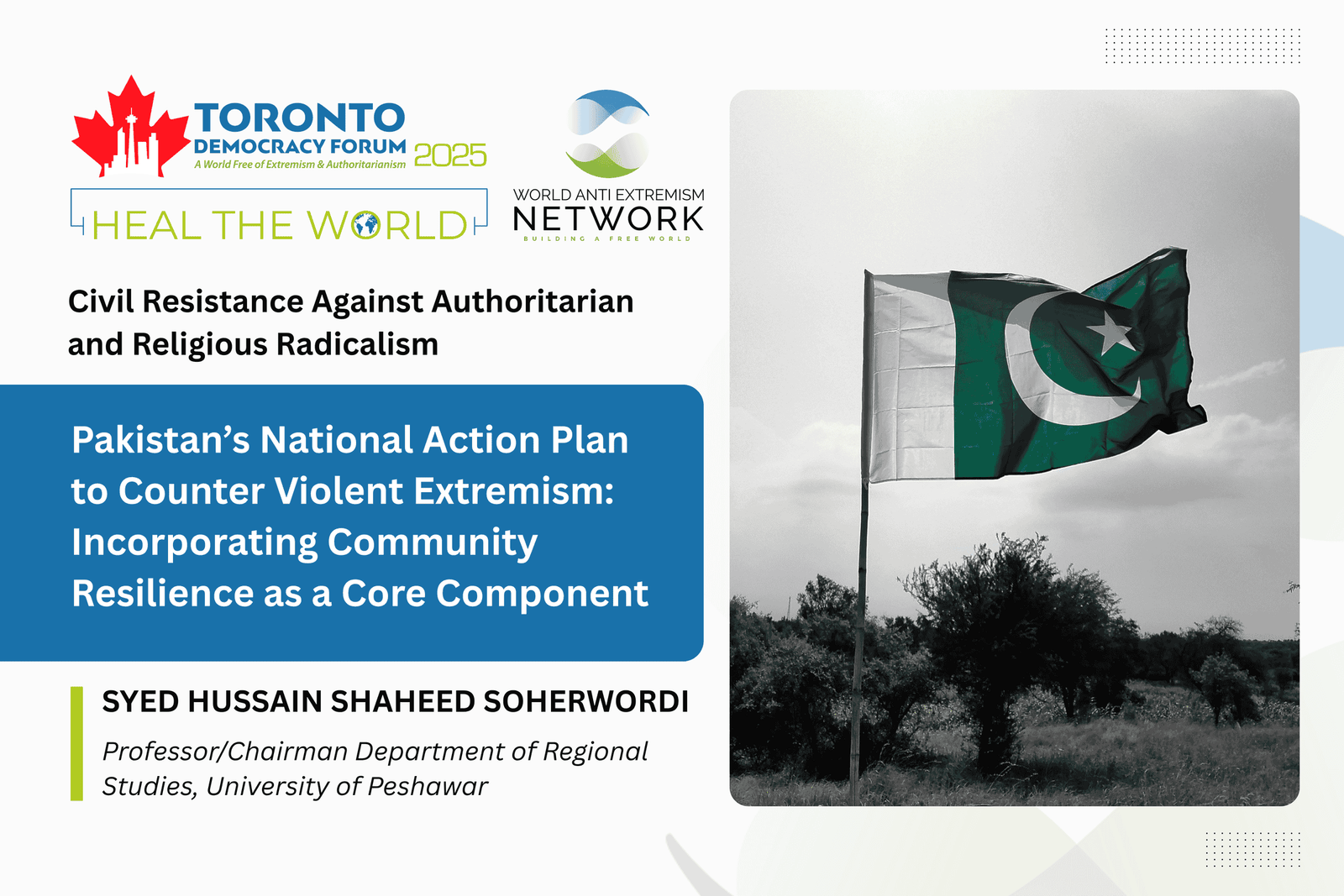
Pakistan’s National Action Plan to Counter Violent Extremism: Incorporating Community Resilience as a Core Component
Community resilience stands out as one of the most effective modes of civic resistance against extremism, empowering people to counter radical influences through social unity, dialogue, and shared responsibility. Yet in Pakistan, despite years of military operations and policy reforms, extremism continues to find ground in vulnerable regions. The National Action Plan (NAP) …
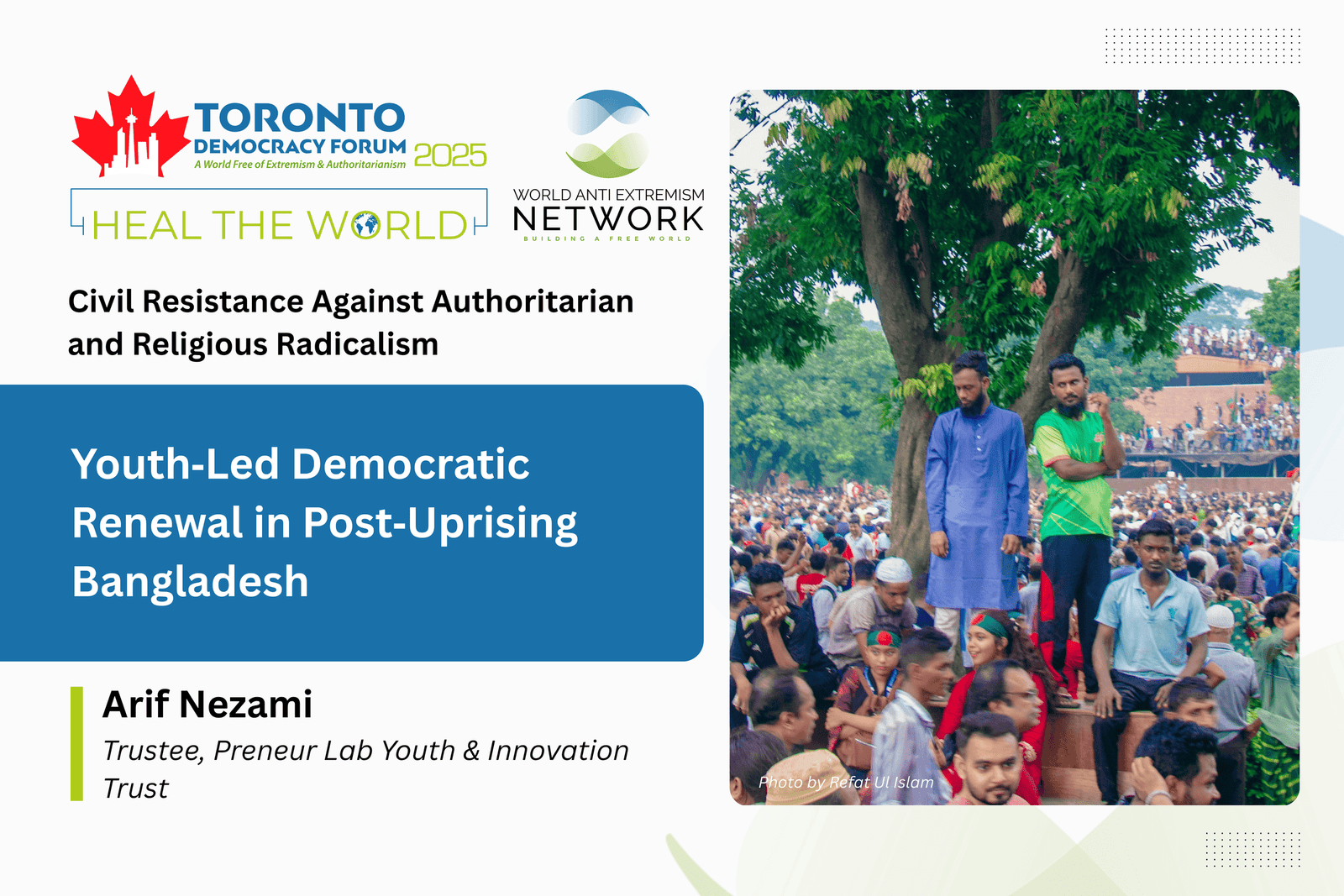
Youth‑Led Democratic Renewal in Post‑Uprising Bangladesh
In July -August 2024, Bangladesh experienced the “July 36 Uprising,” which was a month-long, student-led movement that began with protests against a contested government job-quota system and grew into nationwide demands for accountability, meritocracy, and justice. A harsh state crackdown resulted in significant casualties and detentions and culminated in the regime’s collapse on August 5, 2024, creating an opening for democratic reform.
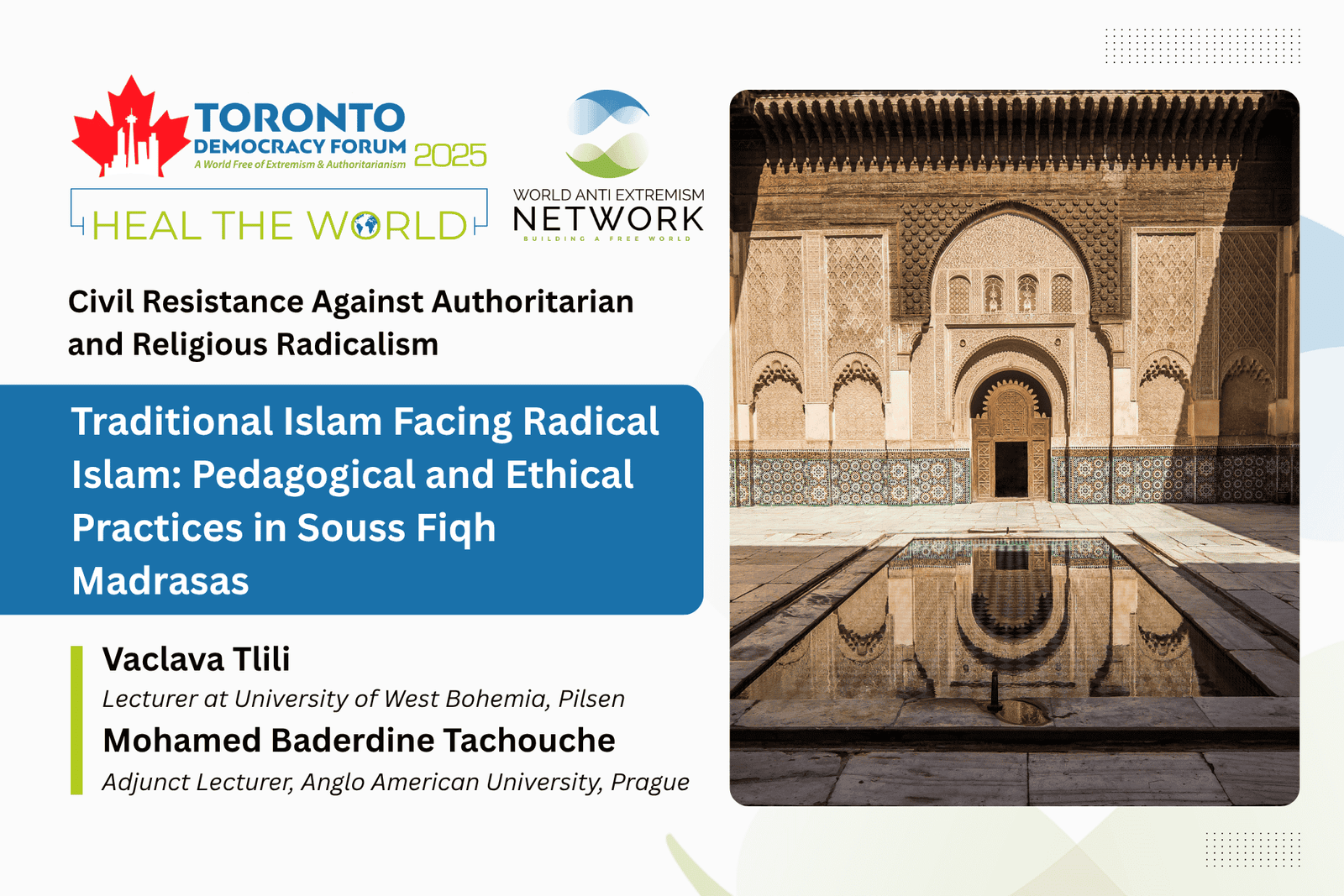
Traditional Islam Facing Radical Islam: Pedagogical and Ethical Practices in Souss Fiqh Madrasas
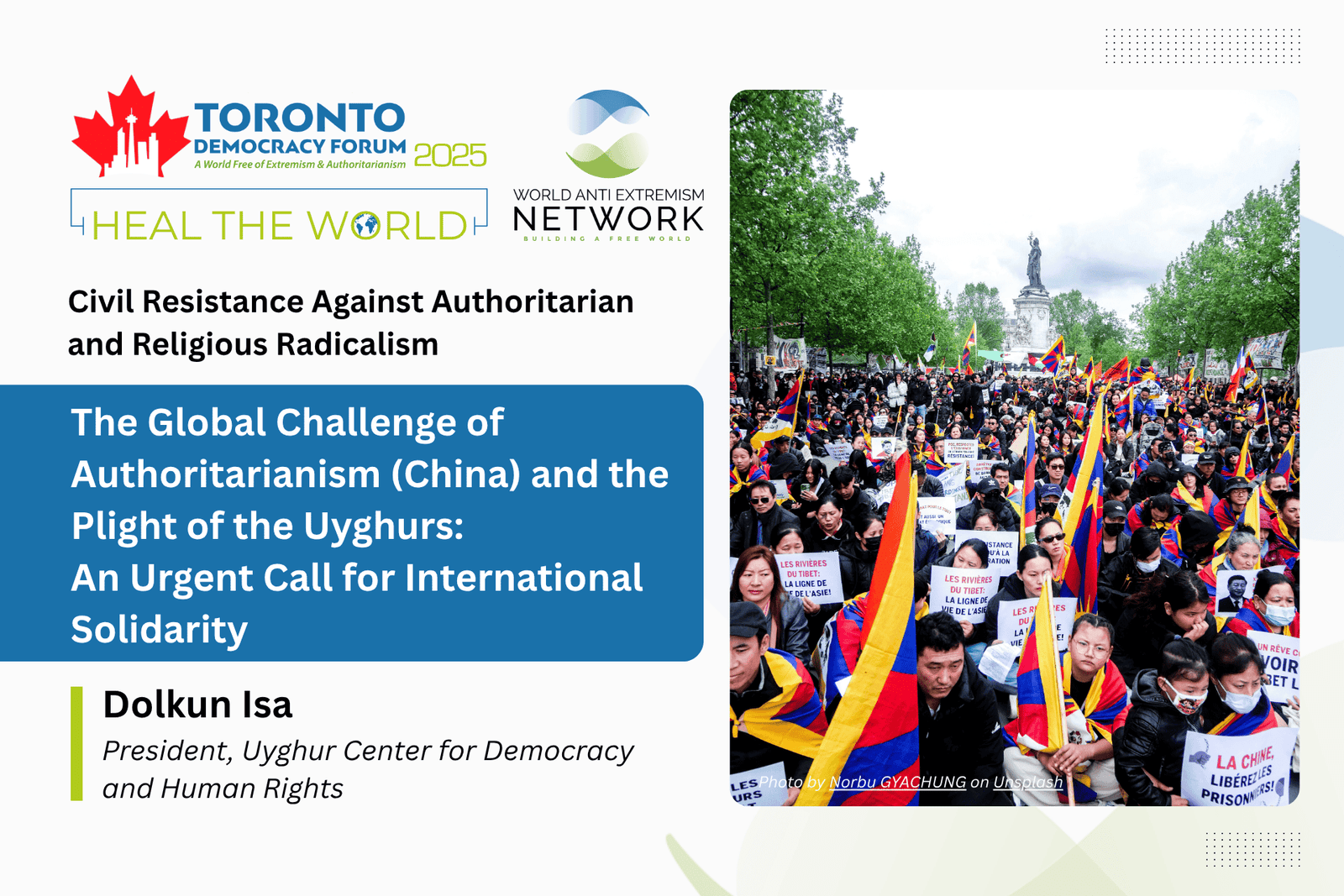
The Global Challenge of Authoritarianism (China) and the Plight of the Uyghurs: An Urgent Call for International Solidarity
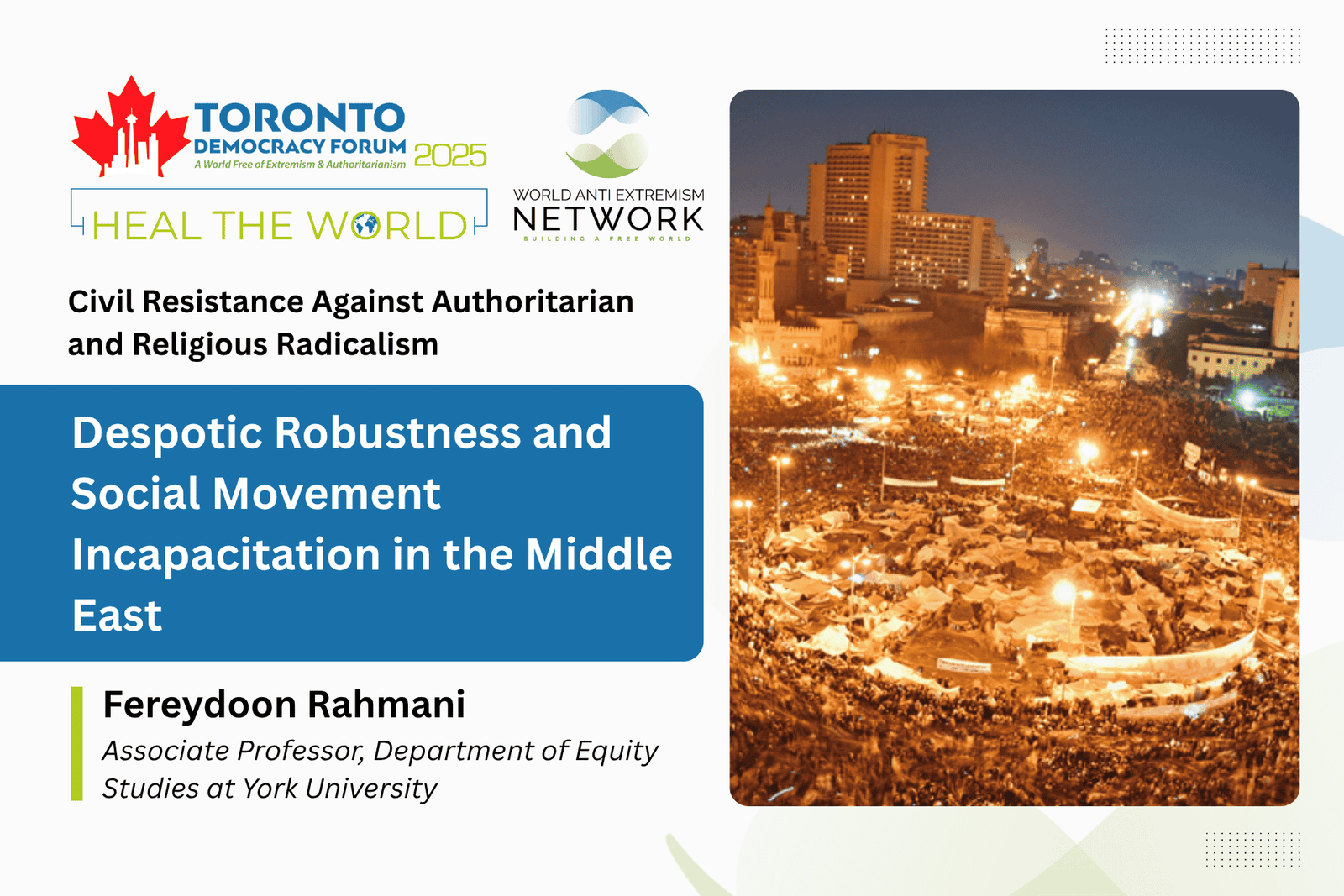
Despotic Robustness and Social Movement Incapacitation in the Middle East
Across the Middle East, people have risen again and again, in Iran, Iraq, Libya, Syria, and across the Arab world, yet these powerful uprisings have rarely led to lasting political change. The core problem is that why do authoritarian regimes survive despite constant waves of resistance? Dr. Fereydoon explains that these regimes endure not just through force but through a system designed to control society and several other reasons.
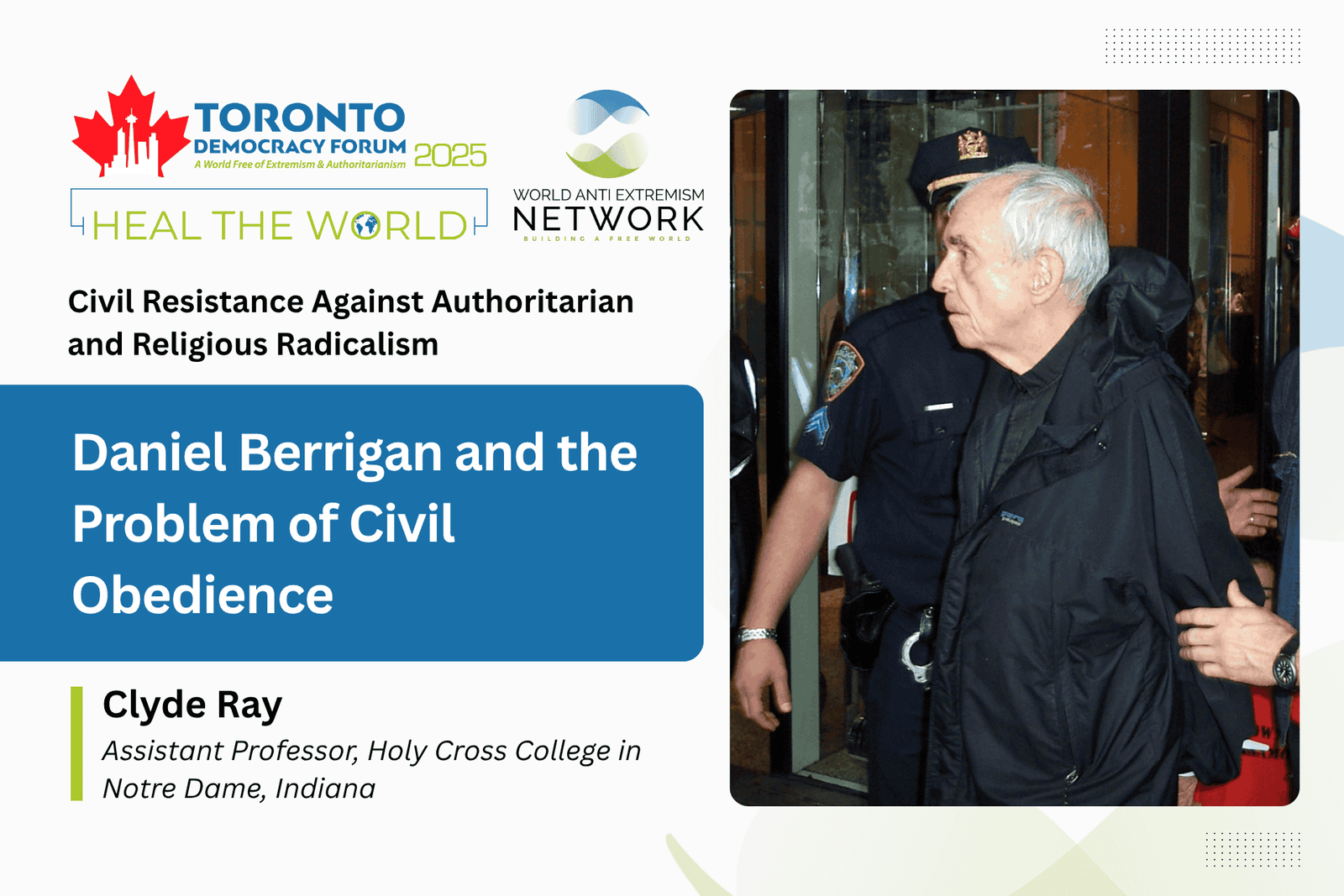
Daniel Berrigan and the Problem of Civil Obedience
The priest-activist Daniel Berrigan has been largely overlooked as a leading representative of the antiwar religious left during the twentieth century. This paper is written by Clyde Ray, Assistant Professor at Holy Cross College in Indiana, where he seeks to correct that neglect at a moment when most religiously-informed cultural and political critiques of the United States tend to issue from conservative …
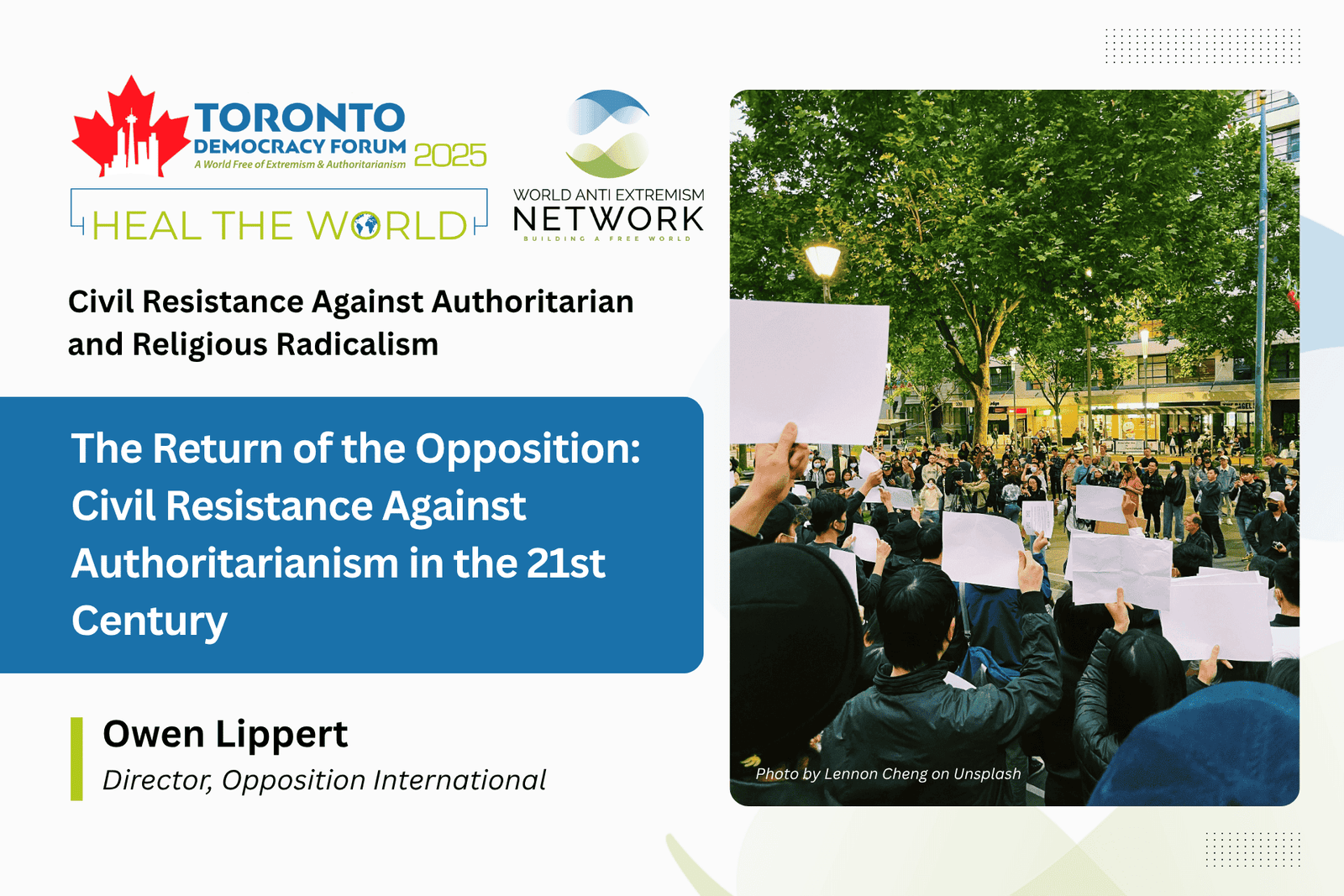
The Return of the Opposition: Civil Resistance Against Authoritarianism in the 21st Century
Democracy is facing a global decline, as in 2024 alone, 94 countries saw freedom weaken as autocracies outnumbered democracies for the first time in decades. In this paper, Owen Lippert, Director of Opposition International, discusses how opposition movements, made up of political parties, civil society groups, diasporas, and everyday citizens, struggle to defend democratic ideals amid surveillance …
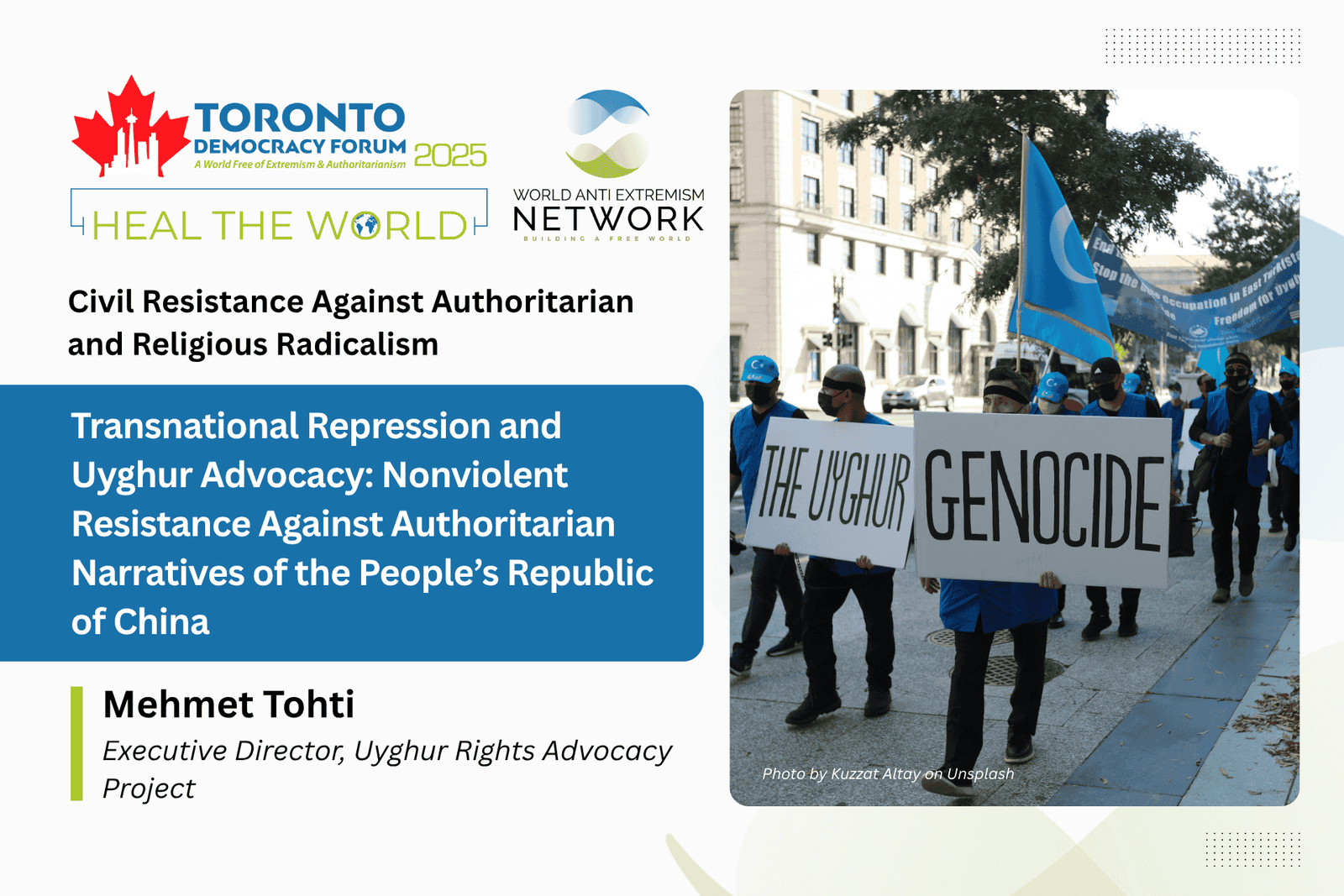
Transnational Repression and Uyghur Advocacy: Nonviolent Resistance Against Authoritarian Narratives of the People’s Republic of China
Transnational repression against the Uyghur community has become one of the most alarming manifestations of authoritarian influence beyond borders. The People’s Republic of China (PRC) extends its control through surveillance, intimidation, and coercion to silence Uyghur advocacy abroad, often framing it as extremism.
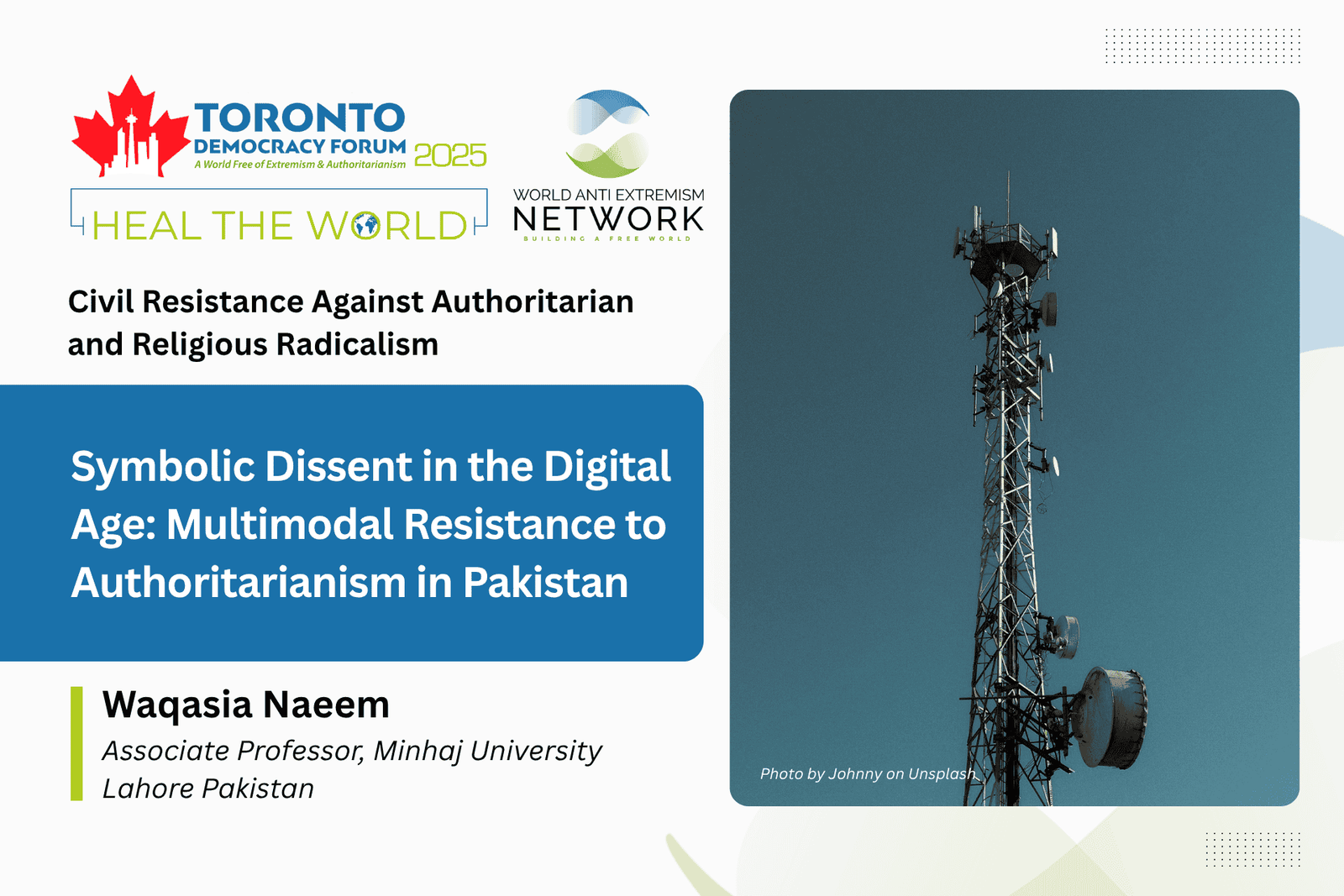
Symbolic Dissent in the Digital Age: Multimodal Resistance to Authoritarianism in Pakistan
Subscribe to our newsletter and stay updated.
Contact
Toronto, Ontario, M1L 0E5 Canada
Subscribe to our newsletter and stay updated.
Contact
Toronto, Ontario, M1L 0E5 Canada
Subscribe to our newsletter and stay updated.
Contact
Toronto, Ontario, M1L 0E5 Canada

